Fall 2017
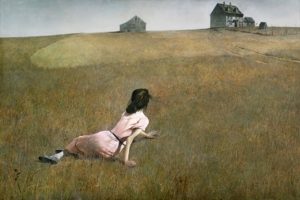
Inside “Christina’s World”
Working with medical students at Penn State University, J.O. Ballard, MD, uses the art of Andrew Wyeth to sharpen their observational skills and help them develop an empathic understanding of the patient’s lived experience of illness.

Personhood, Embodiment, and Disability Bioethics in the Healing Narratives of Jesus
Catholic bioethicist Cory Labrecque, PhD, discusses the healing narratives of Jesus as a rich resource for Christian patients and their caregivers as they pursue meaning and the preservation of personhood following life-changing illness or disability.

The Game
In her poem “The Game,” Anju Kanwar marks the slow progress of time one experiences when haunted by painful thoughts and memories, in the early-morning hours of solitude following a loss.
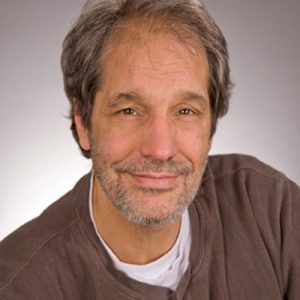
Imprisoned
Vivid, sensorial reflections–of sight, of sound, of touch–create an intimately familiar and entirely unique lyric contemplation on memory and an imagined life-changing injury in Bruce H. Greenfield’s “Imprisoned.”

What Can Be Learned From Relationships Between People With and Without Disabilities: Inter-Abled Relationships
Undergraduate students at Emory University interviewed individuals in three unique relationships to shed light on the diverse impacts disability has on differently-abled people within relationships.

Two Dreams about Losing My Body
Body, my house my horse my hound, what will I do when you are fallen…? Johanna Lutrell, PhD, describes the experience of losing her body after a sudden onset of Guillain-Barre Syndrome.
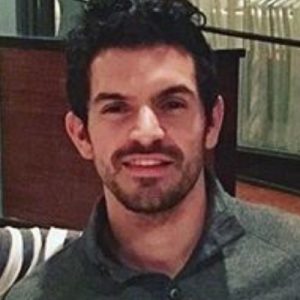
The True Weight of Stigma
In a thoughtful and sensitive report, physical therapist Cameron Jadali discusses the lessons learned in his interaction with an overweight patient–reflecting on his previously unrealized biases regarding weight.
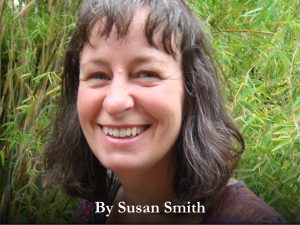
Toward a New Veteranology
Independent scholar Sue Smith reviews John M. Kinder’s Paying with Their Bodies: American War and the Problem of the Disabled Veteran. In the book, Kinder calls for a radical transformation of rehabilitation from a medical model to a social model of disability.
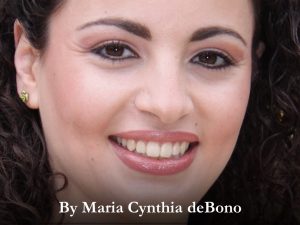
The Rollercoaster Ride: The Lived Experience of People Acquiring a Physical Impairment in Youth
Maltese physiotherapist Maria Cynthia deBono explores the journey that young people take after acquiring a physical impairment. Her research reveals how the actual lived experiences portray this journey as a rollercoaster ride, stabilised by a sense of continuity.

Engaged Citizenship
Welcome to the Fall 2017 issue of the Journal for Humanities in Rehabilitation. We invite you to consider the meaning of engaged citizenship in your curricula and ways the humanities provide creative and innovative intersections of the work of rehabilitation in society.
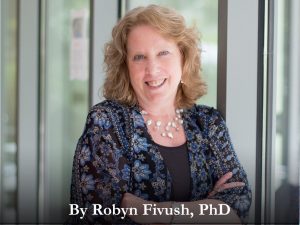
The Power of Stories for Patients and Providers
Robyn Fivush, PhD, argues that sharing our stories with others, and listening to their stories, is a fundamental way of connecting–for patients and medical providers alike. She reports on emerging research that demonstrates the power of stories to build empathy and promote healing.
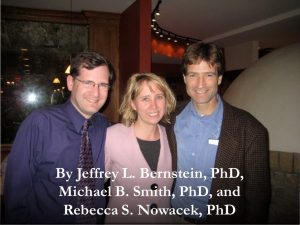
Rehabilitating Citizenship: Lessons from Across the Curriculum
Professors Jeffrey Bernstein, Michael Smith, and Rebecca Nowacek make the case that being a good citizen requires understanding the lives other people experience–their joy and suffering–and working to ease the troubles others face.
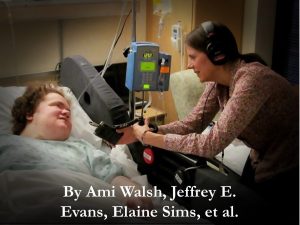
Bedside Audio Storytelling for Hospital Patients: A Program Overview
Authors Ami Walsh, MFA, Jeffrey Evans, PhD, and colleagues describe how digital technology is being used to create patient-centered audio stories in a dynamic program at Michigan Medicine. Audio storytelling, they report, helps to honor a patient’s sense of self and offer comfort and hope.

Resources: Fall 2017
Collection of links and resources for health humanities with potential applications in rehabilitation sciences education, clinical care and research.

